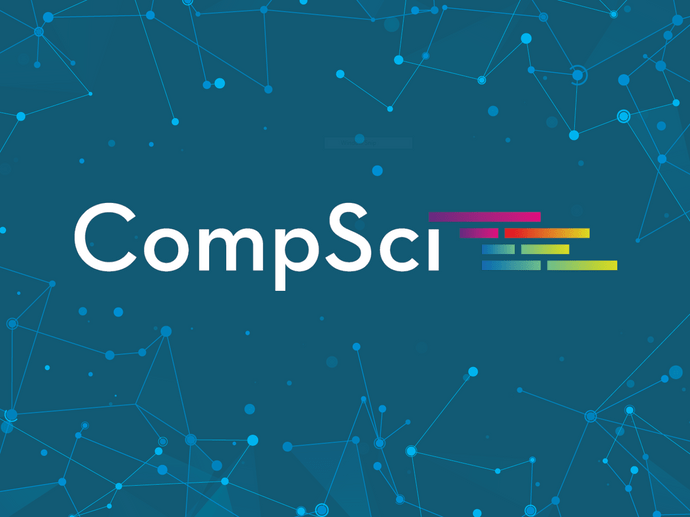The CompSci programme had two calls for applications. All the positions are filled and therefore there will not be future calls.
How to apply?
You can find all the information needed to apply to the CompSci doctoral programme in the Guide for applicants (pdf).
Required attachments
The application must be submitted through the “Jobbnorge” application portal. For an application to be valid, the applicant must submit a complete set of documents via the portal. Please save and upload all attachments with your surname in the file name, e.g. SURNAME-Att-1. Please note that only documents submitted through the portal will be considered (with the exception of Att. 3: Letter of recommendation). You can find the list of required attachments together with instructions below:
Att. 1: CV
Please, use supplied template (word). Applicants must clearly explain any research career gaps and/or unconventional paths. If you have been living in Norway sometime during the last 3 years, please specify the exact duration and motives.
Att. 2: Motivational letter
Please, use supplied template (word). Applicants must apply for a specific research project listed under “Research projects” for the specific call.
Att. 3: Letter of recommendation (with ranking)
NB! In Norway it is customary that the applicants receive the recommendation letters and upload them in the portal themselves. If this is not possible, please tell your referees to send their reference letters by e-mail to our CompSci coordinator Marta Gómez Muñoz (martagm@mn.uio.no) and she will upload them to your application. In the subject of the email your referee must indicate the reference number (JobbNorge ID) for the position and your name. This has to be done by the application deadline for the position. It is sufficient to provide one letter of recommendation (from your professor/ master's degree supervisor). As for the ranking, we would like your reference to make a judgement on how you place in relation to the other students having done the same Master programme. E.g. are you in the top 10% or top 25 % etc. This is just indicative, and the admissions committee will focus mostly on the text of your motivation letter and CV rather than the % ranking.
Att. 4: Bachelor's and master's grade transcripts with official translations
Candidates without a Master’s degree have a deadline to complete the final exam. Read more about the grade requirements.
Att. 5: Documentation of English proficiency
All applicants must demonstrate high English language skills. You can document these skills by passing one of the following tests with these or better grades:
- TOEFL – Test of English as Foreign Language, internet based test (iBT) (test centre or home edition). Minimum total score of 90 with at least 19 in reading, 20 in listening, 20 in speaking and 24 in writing. Minimum component scores apply to studies starting in the autumn semester 2021 and later.
- IELTS – International English Language Testing System. Minimum overall band score of 6.5 with at least 6.5 in each component. Minimum component scores apply to studies starting in the autumn semester 2021 and later.
- Certificate in Advanced English (CAE) and Certificate of Proficiency in English (CPE) from the University of Cambridge
- PTE Academic – Pearson Test of English Academic. Minimum overall score of 62 with at least 58 in each component (listening, reading, speaking and writing). Minimum component scores apply to studies starting in the autumn semester 2021 and later.
The following applicants are exempt from the above-mentioned requirements:
- applicants from EU/EEA-countries
- applicants with one year of completed university studies in Australia, Canada, Ireland, New Zealand, Singapore, United Kingdom, United States
- applicants with an International Baccalaureate (IB) diploma
- applicants who have completed a Bachelor’s and/or a Master's degree with English as the language of instruction in one of the Nordic countries or the Netherlands
Att. 6: Eligibility checklist
Please, complete the supplied eligibility checklist (pdf).
Application portal
The application portal “Jobbnorge” has a field for “application text” and a standard CV which is entered in the portal. Please do not use these online forms, but instead use the CV template and the Motivational letter template (Due to technical reasons, you have to type your chosen thematic area in order to get to the next step in the online form, and you have to fill in only your personal details in the CV stage). It is only these attachments that will form the basis for the evaluation.
You can submit the application at any date until the call closes at 23:59, Central European Time, on the deadline date. Late or incomplete applications will not be accepted.


Who can apply?
Applicants from all nationalities who satisfy the following requirements can apply:
Formal educational requirements
- Qualifications (one of the following)
- A master’s degree or equivalent with a specialization as described for each particular research project
- A foreign completed degree (M.Sc.-level) corresponding to a minimum of four years in the Norwegian educational system
- Grades (the norm is as follows)
- The average grade point for courses included in the Bachelor’s degree must be C or better in the Norwegian educational system
- The average grade point for courses included in the Master’s degree must be B or better in the Norwegian educational system
- The Master’s thesis must have the grade B or better in the Norwegian educational system
- English language skills
- Fluent oral and written communication skills in English.
- Read more about how to document your English language skills and who is exempt from presenting this documentation.
- Desirable qualifications
- Good knowledge of the scientific field addressed by the project(s) of interest is desirable
- Strong quantitative and analytical skills are an advantage
- Good communication and interpersonal skills are necessary
Candidates without a Master’s degree have a deadline to complete the final exam.
Read more about the formal requirements.
Research experience
As per Marie Sklodowska-Curie Action requirement, the candidate must at the date of the programme call deadline be within the first four years (FTE-equivalent) of their research careers and not yet be awarded at doctoral degree. Full-time equivalent research experience is measured from the date when you obtained the degree entitling you to embark on a doctorate (e.g. from your Master's degree).
Mobility requirement
As per Marie Sklodowska-Curie Action requirement, the candidate may not have resided and/or carried out their main activity in Norway for more than 12 months in the 3 years immediately before the date of recruitment. Researchers with refugee status, as defined by the Geneva Convention, benefit from a less restrictive mobility rule: the refugee procedure (i.e. before refugee status is conferred) will not be counted as a period of residence/activity in Norway. The secondment host country is exempt from the mobility rule.
► In order to be eligible, in addition to fulfilling the requirements specified above, you need to submit through the application portal a complete application with all required attachments. Please read the Guide for applicants (pdf).
Evaluation process

Steps and timeline
After the deadline of the call, the following steps are used to assess the candidates:
- Eligibility check: The CompSci Office at UiO will check that each applicant fulfils the eligibility criteria. All the eligible and non-eligible candidates will be notified about their status.
- Expert panels: The applicants for each project will be assessed by a panel of experts using the selection criteria for written application elements. At least three experts will assess each proposal independently. The composition of the panel of experts will be in line with the "European Charter for Researchers and Code of Conduct for their Recruitment", especially in terms of diverse competence, gender balance, and inclusion of members from different countries. Experts will perform evaluations on a personal basis, not as representatives of their employer, country or any other entity. They will be independent, impartial and objective, and behave throughout in a professional manner.
- Ranking of written application elements: A consensus meeting will ensure a common consensus on ranking and produce a ranked list of all applicants. The selected and non-selected candidates will be notified about their status.
-
Interviews for candidates above threshold: The top candidates with a score above a threshold of 70% will be invited for a video interview with the evaluation panel. The interviews will follow the structure and scoring described in “Selection criteria – Interview”. The interviews with selected candidates will take place online.
-
Final ranking of candidates: The candidates’ scores from the written (60% weight) and oral (40% weight) evaluations will form the basis of a final ranking. The final ranking will be notified to the candidates.
-
Offers: The top candidates for each project will be offered standard contracts for the positions. Successful candidates will start their positions at the University of Oslo. Read more about the employment conditions.
Redress procedure
Each candidate has the possibility to ask for a redress of their evaluation at four points of time during the evaluation process:
- After the eligibility check
- After the outcome of the written evaluation
- After the outcome of the oral evaluation
- After the funding decision
Within one week of the respective information to candidates, candidates can ask for redress by filling in the online Form for Redress (one page), and send it to the CompSci Program Office. In case of a justified redress, the application will be re-evaluated/the interview will be redone. Redress decisions are final.

Selection criteria
Selection criteria - Written application elements
The candidates are first scored against selection criteria based on the application elements. The candidate will be scored along the following criteria, with a max score of 5 for each criterion.
| Criterion | Factors | Threshold | Weight |
|---|---|---|---|
| CV, degree and skills | Grades, track record, publications and presentations, student should be in the top 25% of their respective grading system | 3 | 45% |
| Motivation letter | Scientific maturity, motivation and interdisciplinary motivation | 2 | 15% |
| Match with topic | Relevance of education, thesis, and courses | 3 | 30% |
| Reference letter | Statement of relative rank in cohort | 2 | 10% |
In order to be eligible for the interview phase, the candidate must satisfy the threshold score and have a total score of 70%. Up to three times as many candidates as there are positions will be interviewed. If there are more candidates exceeding the thresholds, the candidates will be ranked based on the written material, and only the top three will be interviewed for a given project.
Priority in case of ex aquo will be: 1. CV; 2. Motivation letter; 3. Match with topic; and 4 Reference letter. In case of a draw, female applicants will be prioritized.
Selection criteria - Interview
Interviews will follow a structured template used by all interview committees to reduce bias. The interview will consist of the following parts.
| Time | Contents | Threshold | Weight |
|---|---|---|---|
| 15 min | Scientific presentation about previously carried out research work (e.g. MSc), or relevant work experience. Criteria: Clarity and consistency of presentation, ability to take part in a scientific discussion, Oral English skills. | 3 | 50% |
| 10 min | CV presentation and how candidate matches with topic. Criteria: Ability to answer CV-related questions, match CV to research topic | 3 | 30% |
| 15 min | Team work experience and interdisciplinary motivation. Criteria: Initiative to contribute, interdisciplinary motivation | 3 | 20% |
| 5 min | Candidate’s questions | No | 0% |
A threshold score of 3 on each of the criteria is required to pass to the next stage. Priority in case of ex aquo will be: 1. Scientific presentation; 2. CV presentation; and 3. Team work. In case of a draw, female applicants will be prioritized.
Scoring
Scoring will follow standard MSCA scoring with 0-5 for each sub-criterion. The score interpretation is:
0: Fails to address the criterion or cannot be assessed due to missing or incomplete information.
1: Poor. The criterion is inadequately addressed or there are serious inherent weaknesses.
2: Fair. Broadly matches the criterion, but there are significant weaknesses.
3: Good. Addresses the criterion well, but a number of shortcomings are present.
4: Very good. Addresses the criterion very well, but a small number of shortcomings are present.
5: Excellent. Successfully addresses all relevant aspects of the criterion. Any shortcomings are minor.
Ethics
CompSci aims to secure high ethical standards and the program adheres to the European Commission’s ethical principles of Horizon 2020. All research projects in the program must abide with EU and national/local ethics regulations of the University of Oslo.

